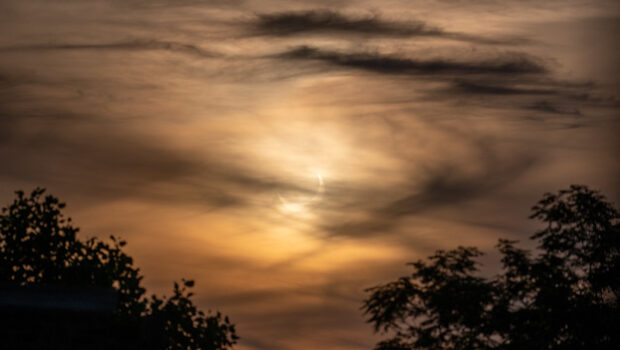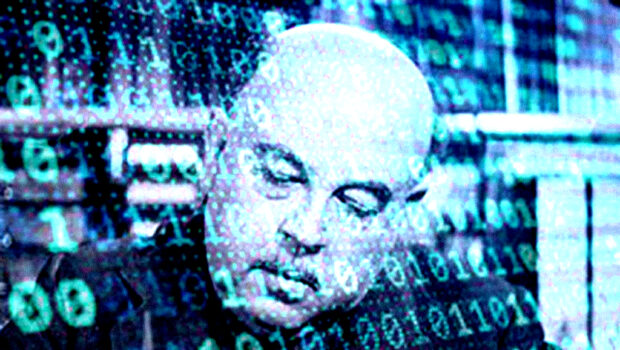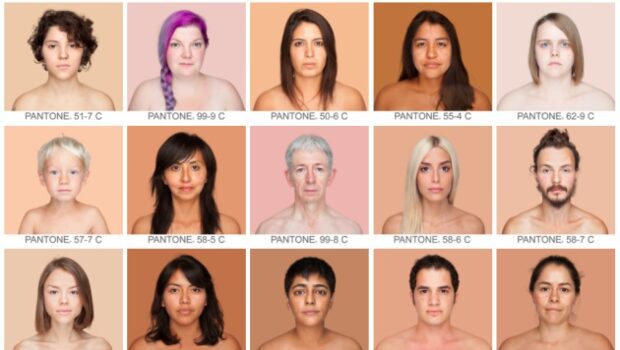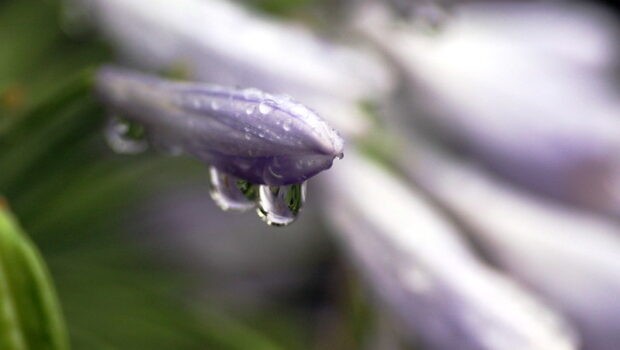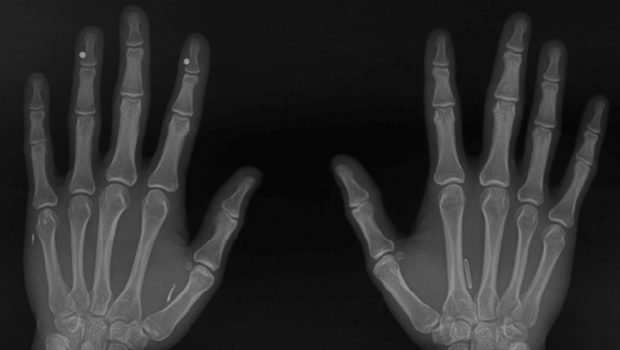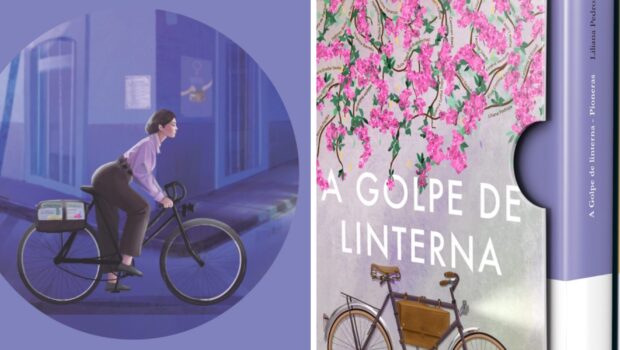The Perfidious God of Weather
El pérfido dios del tiempo
Adriana Díaz Enciso
“Solar eclipse” was written in big letters in my diary, on the page corresponding to the 10th of June (I’m one of those people who still use paper diaries). I had written that reminder months ago. In the absence of special glasses, I had made my rudimentary cardboard camera to follow the moon’s march as it darkened the circumference of our great luminous star. Though the eclipse would be only partial, I had to be a witness.
Even the night before, I had no doubt that we would see it. Some readers may remember that not long ago I was complaining that this year we had no spring in the United Kingdom. Somehow, it is true: we did have blossoms, we can’t deny it, but they appeared timid and untimely, as disconcerted as humans to be waking up in such mercilessly cold and dark days. Technically, we went from winter straight into summer. One morning I had to wear gloves when going out. The next day everything was light dresses and sandals, shorts, shades, men with bare torsos (for better or worse, depending on whom), and that indescribable outburst of instinctive joy that comes with light and warmth after the winter sleep (not to talk about a pandemic winter). We had already enjoyed several perfect, warm days with blue skies and a splendid sun.
But alas!, the 10th of June came along. It was all opening our eyes and feeling how they got lost, in disbelief, in an imperturbably grey sky. It was still hot, by the mercy of who knows which compassionate deity, but as far as the sun was concerned, nothing: eclipsed, indeed, but by simple, obstinate clouds. With smarting misgivings, I logged into the live stream from the Greenwich Royal Observatory. That was a comedy: the telescope, aiming at the sun, showed in the You Tube screen a neat black rectangle. The hundreds (perhaps thousands) of attendants gave vent to their frustration with some inventiveness; what else could we do? It was all clouds, clouds, clouds everywhere.
Regardless, I went out to the garden with my little camera in the supposedly culminating moment. Nothing. Not even the slightest change in the day’s no-light, and not precisely because the eclipse was slow and partial, but because we were floating amongst clouds, like delicate jewels in a smothering cotton sphere.
It is a communal garden, and I met a couple of neighbours and two workers who were carrying out repairs in one of the buildings. They looked at me with curiosity as I walked hesitatingly from one place to the next, peering into my cardboard contraption. “I’m trying to watch the eclipse”, I explained, appealing mostly to their compassion, for I gathered that I cut a rather odd figure. “Ah, but it’s cloudy!”, they said laughing, resigned and, perhaps, with the compassion I was needing. At some point the builders raised their eyes to the sky. “Don’t look at it directly!”, I cried out in alarm. “You’re going to hurt your eyes!” But I shouldn’t have worried because there was no sun. I don’t think anyone has ever had their retina fried by staring at endless stripes of grey clouds.
The flowers, with their revelry of wasps and fat bumble bees dancing around, didn’t fold their corollas one bit. I went back to my flat to see what was happening in Greenwich. Nothing. The same black, abysmal rectangle, the jokes in the comments’ column and the good disposition of the astronomer in charge every moment closer to despair. I went out again. For a second I felt the warmth on my skin, I saw light making its way through the clouds and, upon the white cardboard, the minute sphere of the sun partly covered by the arc of the moon’s shadow. However, it was so fleeting that I wasn’t sure I hadn’t imagined it. The phenomenon happened a couple of times more. Afterwards, only clouds. Back to Greenwich’s transmission, I read comments by people who claimed, quite excited, having seen it for a second: the famous circle of fire or who knows what, but now the screen was again as black as the dark night of the soul, and that’s how it stayed until the eclipse was over.
I was dejected and in a terrible mood. Where was the sun that had given us such delight for the past ten days? It was there, of course, behind the baneful clouds that, two hours after the eclipse, decided at last to beat a retreat, I suppose killing themselves with laughter. I could almost hear them. The afternoon that followed was barely clouded; it would have been perfect to watch the ill-fated spectacle.
The God of Weather is the despot who rules this island’s meteorological phenomena. It is cruel, crafty, sly. I’ve lost count of the times I’ve missed lunar eclipses (the “blood moons”), including last May, because that evening precisely the sky has decided to become overcast. One evening, two or three years ago, I went up to Alexandra Palace, with futile expectations to watch an eclipse that would supposedly be spectacular, but already in the afternoon rain had started pouring down. I was hoping against hope that the storm would stop and it would clear up. I wasn’t the only one. The Alexandra Palace terrace, high up in north London, was full of astronomers, amateur and otherwise, and of enthusiasts of all descriptions, protecting their telescopes with an umbrella. The only thing that was spectacular was the storm, and the soaking. As for the moon, bloody or not, we saw nothing.
When I think of climate change in the British Isles, what first comes to mind isn’t the ecological catastrophe that is robbing us of our sleep, and our future, though of course it also creates havoc over here, but this constant changing from blue and sunny sky to clouds and rain and then, again, the sun; this never knowing if we’ll be able to watch an eclipse, if the glorious summer will become torrential rain precisely on a bank holiday, or whether we’ll need umbrella, jumper, jacket. The weather report itself vacillates.
True, I complain, but there’s some sweetness in this. I often imagine we’re in a ship; that that’s the reason why the skies are never still: it is us who are moving forward, slowly drifting, and the changing sky is the spur for our pondering. There, we can see the very matter of life, our own story like clouds with their shapes that seem to be utterly distinct and a few moments after are frayed cotton threads that end opening up—sometimes, when we’re lucky—to the literal illumination of the infinite, blue sky.
Above all and in the centre of all is the sun. It is there even when it’s not, when we long for it, when the winter lengthens interminably and we think in despair that we will see it no more. Mortal too, small in comparison to other stars, in other planetary systems, it is however the absolute god for us, we who invent, discover, imagine gods in this colourful and fragile world. Flowers seek it out, sing to it.
Now it’s the poppies season. They come, of course, in all colours. The other day my heart leaped with sheer joy when I saw the open, wide corollas of pink and orange poppies next to one of the new buildings in the estate I live in. They opened just like that, from one day to the next, reminding me that it’s good to expect the unexpected. Silently I thanked the gardeners for bringing to our doorstep that song of indomitable life—poppies, like hollyhocks, are sexual explosions, burning with colour, growing out of wild stems like those of weeds. However, yesterday, as I came back at noon, I saw those same gardeners (one wearing an extraordinary straw hat) hard at work, under the fierce sunshine—now returned—and the poppies that had given me such delight were lying on the floor, their blossom dead. They had pulled them up, the scoundrels. I didn’t tell them anything because I felt like hitting them. They hadn’t sown them, then: the poppies were invaders, and they had made them pay.
There’s a mystery, though because on the lawn facing my window the gardeners left uncut a wide area where a community (I hope invincible) of poppies is growing fast. Did they leave them there because they had run out of time? Or it was there where they wanted them, but not in the other place? Be that as it may, I hope that the flowers won’t give up. That, if they’re pulled up, they’ll shed their seeds on the earth to rise again, over and over. From my window, in the afternoon breeze, they look like a festive army, a tantalising voice shouting what Rilke said: “You must change your life”.
It is, I say, the season of poppies. And of roses (Rilke, again). Roses have opened throughout the city at astounding speed, as if, during the everlasting winter, they had been concentrating all of the will and strength in their voluptuous soul to burst, when the moment came, and bewitch us. They’re huge, and their infinite petals are indeed soft, but they also seem to be made of flesh. Big like animals, just about to burst into song, if they’re not singing already, though us, lost in our human world of hurry and fears, fragmented reality and arduous uncertainty, cannot hear them.
They’re singing to the sun, to the blue sky, to the air. Their scent is sheer coquetry.
I have wanted too to sing to the sun. I wanted to see a ring of fire in the dark sky (and no, not on the screens of computers and phones); I wanted I know not what portent that would make me dance, intoxicated, fierce like a poppy, or else withdrawing like a bud that folds up in the untimely night, heart beating in wait of the return of that dazzling pagan god.
On the 10th of June I had clouds, which, it must be said, do have their own charm. I ended up subdued by the god of weather and the god of time. For another eclipse, we’ll have to wait for the figures of the dance up there in the sky to be realigned. They say that there will be another one in 2022, but it will be even more partial.
During one of my pointless returns to the garden, standing beneath the grey clouds, trying to see in the white cardboard (that looked grey too) the tiny lines of the portent, the two builders walked past me; perhaps they were going to get their lunch. One of them was singing, maybe with sarcasm, and not altogether in tune, “total eclipse of the heart”.
The next visible total solar eclipse in the UK will take place on the 23rd of September 2090. Though I won’t be here to corroborate, I can tell you right away: there will be clouds.
*Image by Eric Kilby
“Eclipse solar”, decía con letras grandes en mi agenda la página correspondiente al 10 de junio (soy de las que todavía usan agendas de papel). Había anotado ese recordatorio hacía meses. A falta de lentes especiales, había confeccionado mi cámara casera de cartón para seguir el paso de la luna oscureciendo la circunferencia de nuestro gran astro de luz. Aunque el eclipse sería parcial, había que ser testigo.
Todavía la noche anterior no dudaba de que todos lo veríamos. Algunos lectores recordarán que hace muy poco me quejaba de que este año no tuvimos primavera en el Reino Unido. De alguna forma, es verdad: flores sí hubo, eso es cierto, pero fueron apareciendo medrosas y a destiempo, tan desconcertadas como los humanos de su despertar a días tan inmisericordemente fríos y oscuros. Técnicamente, pasamos del invierno directo al verano. Una mañana me tuve que poner guantes al salir. Al día siguiente ya todo fue vestidos ligeros y sandalias, shorts, lentes oscuros, hombres con el pecho desnudo (para bien y para mal, dependiendo del caso), y esa indescriptible erupción de gozo instintivo que llega con la luz y el calor tras el sueño invernal (ya no digamos tras un invierno de pandemia). Llevábamos ya varios días perfectos, calurosos, de cielos claros y un sol espléndido.
Pero llegó, ¡ay!, el 10 de junio. Fue abrir los ojos y sentirlos perderse, incrédulos, en un cielo imperturbablemente gris. Seguía haciendo calor, por merced de quién sabe qué deidad compasiva, pero del sol, nada: eclipsado, sí, pero por simples, necias nubes. Con hiriente resquemor me conecté a la emisión en vivo del Real Observatorio de Greenwich. Aquello era una comedia: el telescopio, apuntando al sol, mostraba en la pantalla de You Tube un pulcro rectángulo negro. Los cientos (o quizá miles) de asistentes daban rienda suelta a la frustración con cierta inventiva; no había nada más que hacer. Nubes, nubes, nubes por todas partes.
De todas formas, en el supuesto momento culminante salí al jardín con mi camarita. Nada. Ni el más mínimo cambio en la no-luz del día, y eso no precisamente porque el eclipse fuera parcial y lento, sino porque estábamos flotando entre nubes, como joyas delicadas en una asfixiante esfera de algodón.
El jardín es comunal, y me encontré con un par de vecinos y dos trabajadores que hacían reparaciones en un edificio. Me miraban con curiosidad mientras caminaba indecisa de un lado al otro, asomando a mi artilugio de cartón. “Estoy tratando de ver el eclipse”, les explicaba, más que nada apelando a su piedad, porque me figuraba que debía tener una pinta muy estrafalaria. “¡Ah, pero está nublado!”, decían riendo, con resignación, quizá incluso con la piedad que yo necesitaba. En un momento los trabajadores levantaron la vista al cielo. “¡No, no lo vean directamente!”, exclamé, muy alarmada. “Se van a lastimar los ojos.” Pero no debí haberme preocupado, porque no había sol. A nadie, creo, se le ha freído nunca la retina por ver franjas interminables de nubes grises.
Las flores, con su fiesta de avispas y abejorros gordos danzando alrededor, no cerraron sus corolas ni un tantito. Regresé al departamento a ver qué pasaba en Greenwich. Nada. El mismo rectángulo negro, abismal, las bromas en la columna de comentarios y el buen humor del astrónomo a cargo cada vez más cercanos a la desesperación. Volví a salir. Por un segundo sentí el calor en la piel, vi la luz abrirse paso entre las nubes y, en el cartón blanco, la esfera diminuta del sol, en parte cubierta por el arco de sombra de la luna. Duró tan poco, sin embargo, que no estaba segura de no haberlo imaginado. El fenómeno sucedió un par de veces más. Luego, solo nubes. De regreso a la transmisión de Greenwich, leí comentarios de gente que decía, emocionada, que lo había visto, por un segundo: el famoso círculo de fuego o qué sé yo, pero ahora estaba de nuevo la pantalla negra como la noche oscura del alma, y así se quedó hasta que acabó el eclipse.
Me quedé desanimada y de pésimo humor. ¿Dónde estaba el sol que nos había llenado de regocijo durante los últimos diez días? Estaba allá, claro, atrás de las nubes funestas que, dos horas después de pasado el eclipse, decidieron emprender por fin la retirada, me imagino yo que muertas de la risa. Casi podía oírlas. La tarde que siguió fue apenas nublada; habría sido perfecta para ver el malogrado espectáculo.
Cuando hablo del “Dios del tiempo” no me refiero al Titán Cronos, sino al déspota que gobierna los fenómenos meteorológicos en esta isla. Es cruel, socarrón y taimado. He perdido la cuenta de los eclipses lunares (las “lunas de sangre”), incluyendo el del pasado mayo, que me he perdido porque justo esa noche el cielo se encapota. Hará dos o tres años que fui de noche, con vana esperanza, a lo alto de Alexandra Palace para ver un eclipse que supuestamente sería espectacular, pero ya en la tarde había empezado a llover. Tenía la ilusión de que la tormenta parara y se despejara el cielo, y no era la única. La terraza de Alexandra Palace, un punto elevado en el norte de Londres, estaba llena de astrónomos, amateur y no, y de entusiastas de toda índole, protegiendo sus telescopios con paraguas. Lo único espectacular fue la tormenta, y la mojada que nos dimos. De la luna, de sangre o no, no vimos nada.
Cuando pienso en el cambio climático en las islas británicas, lo que se me viene primero a la mente no es la catástrofe ecológica que nos está quitando el sueño y el futuro, aunque claro que acá también causa sus estragos, sino este cambiar constante del cielo azul y soleado a las nubes y la lluvia y luego, de nuevo, el sol; a este no saber nunca si podremos ver un eclipse, si el verano glorioso se convertirá en lluvia torrencial justo en un puente (bank holiday, le dicen acá), si hará falta paraguas o no, o suéter, chamarra. El mismo informe meteorológico titubea.
Me quejo, cierto, pero algo tiene esto de dulzura. A menudo me imagino que vamos en un barco; que es por eso que los cielos no se quedan quietos: somos nosotros los que avanzamos, lentamente, a la deriva, y el cielo cambiante es la espuela de nuestra ensoñación. Ahí podemos ver la materia misma de la vida, nuestra historia como nubes con sus formas que parecen clarísimas y momentos después son hebras deshilachadas de algodón que terminan por abrirse —a veces, cuando estamos de suerte— a la iluminación literal del cielo infinito y azul.
Sobre todo y al centro de todo está el sol. Está ahí incluso cuando no está, cuando lo añoramos, cuando el invierno se alarga y pensamos, desesperados, que no lo veremos más. También mortal, pequeño en comparación con otros astros, en otros sistemas planetarios, es sin embargo el dios absoluto para nosotros que inventamos, descubrimos, imaginamos dioses en este mundo colorido y frágil. Las flores lo buscan, le cantan.
Ahora es época de amapolas. Vienen, por supuesto, en todos los colores. El otro día me dio el corazón un salto de pura alegría cuando vi abiertas las amplias corolas de amapolas rosas y anaranjadas junto a uno de los nuevos edificios en donde vivo. Se abrieron así, de un día para otro, recordándome que hay que saber esperar lo inesperado. En silencio agradecí a los jardineros por traer a nuestra puerta ese canto de vida indómita—las amapolas, como la malva real, son estallidos sexuales y encendidos de color que crecen de tallos salvajes con pinta de mala hierba. Ayer, sin embargo, regresando a casa al mediodía vi a esos mismos jardineros afanados en su trabajo, bajo el vivo rayo del sol devuelto (uno con un sombrero de paja extraordinario), y las amapolas que me habían llenado de gozo estaban en el suelo, la flor ya muerta. Las habían arrancado, los canallas. No les dije nada porque tenía ganas de pegarles. No las habían sembrado ellos, entonces: llegaron de invasoras, y las hicieron pagar.
Pero hay un misterio, porque en el césped frente a mi ventana dejaron los jardineros sin cortar un área amplia donde crece velozmente una comunidad que espero invencible de amapolas. ¿Las dejaron porque ya no les dio tiempo de cortarlas? ¿O las querían ahí, pero no en el otro sitio? Sea como sea, yo espero que las flores no se rindan. Que si las arrancan echen sus semillas a la tierra y vuelvan a salir, una y otra vez. Desde la ventana, en la brisa de la tarde, parecen un ejército festivo, una voz incitante que grita lo que Rilke dijo: “tienes que cambiar tu vida”.
Es, les digo, el tiempo de las amapolas. Y las rosas (Rilke de nuevo). Las rosas se han abierto por toda la ciudad con asombrosa rapidez, como si durante el eterno invierno hubieran estado concentrando toda la voluntad y fuerza de su alma voluptuosa para, llegado el momento, reventar y hechizarnos. Son inmensas, y los infinitos pétalos son suaves, sí, pero también parecen estar hechos de carne. Grandes como animales, a punto de echarse a cantar, si no es que cantan ya, aunque nosotros, extraviados en nuestro mundo humano de prisas y temores, realidad fragmentada y ardua incertidumbre nos las alcancemos a escuchar.
Le cantan al sol, al cielo azul, al aire. Su perfume es puro galanteo.
Yo también le he querido cantar al sol. Quería ver un anillo de fuego en el cielo oscuro (y no, no en las pantallas de computadoras y teléfonos); quería no sé qué portento que me hiciera bailar intoxicada, feroz como amapola, o un silencio impenetrable que me hiciera, por el contrario, recogerme como un capullo plegándose en la noche a destiempo, el corazón palpitante a la espera del regreso de ese dios deslumbrante de paganos.
El 10 de junio tuve nubes, que, hay que aceptarlo, también tienen lo suyo. Terminé sometida al dios del tiempo, y esta vez me refiero también al sentido más obvio de la palabra. Para otro eclipse habrá que esperar a que se reacomoden las figuras de la danza allá en el cielo. Dicen que en octubre 2022 habrá otro, pero será todavía más parcial.
En uno de mis inútiles regresos al jardín, de pie bajo las nubes grises, tratando de ver en el cartón blanco (que se veía gris también) el trazo diminuto del portento, los dos trabajadores pasaron junto a mí; iban a comer, quizá. Uno de ellos cantaba, con sorna quizá, y no muy bien entonado, total eclipse of the heart.
El próximo eclipse de sol total visible desde el Reino Unido será el 23 de septiembre de 2090. Aunque no estaré aquí para corroborarlo, desde ahora se los puedo asegurar: habrá nubes.
*Imagen de portada de Eric Kilby
 Adriana Díaz-Enciso es poeta, narradora y traductora. Ha publicado las novelas La sed, Puente del cielo, Odio y Ciudad doliente de Dios, inspirada en los Poemas proféticos de William Blake; los libros de relatos Cuentos de fantasmas y otras mentiras y Con tu corazón y otros cuentos, y seis libros de poesía. Su más reciente publicación, Flint (una elegía y diario de sueños, escrita en inglés) puede encontrarse aquí. Su Twitter es @ADiazEnciso1
Adriana Díaz-Enciso es poeta, narradora y traductora. Ha publicado las novelas La sed, Puente del cielo, Odio y Ciudad doliente de Dios, inspirada en los Poemas proféticos de William Blake; los libros de relatos Cuentos de fantasmas y otras mentiras y Con tu corazón y otros cuentos, y seis libros de poesía. Su más reciente publicación, Flint (una elegía y diario de sueños, escrita en inglés) puede encontrarse aquí. Su Twitter es @ADiazEnciso1
©Literal Publishing. Queda prohibida la reproducción total o parcial de esta publicación. Toda forma de utilización no autorizada será perseguida con lo establecido en la ley federal del derecho de autor.


